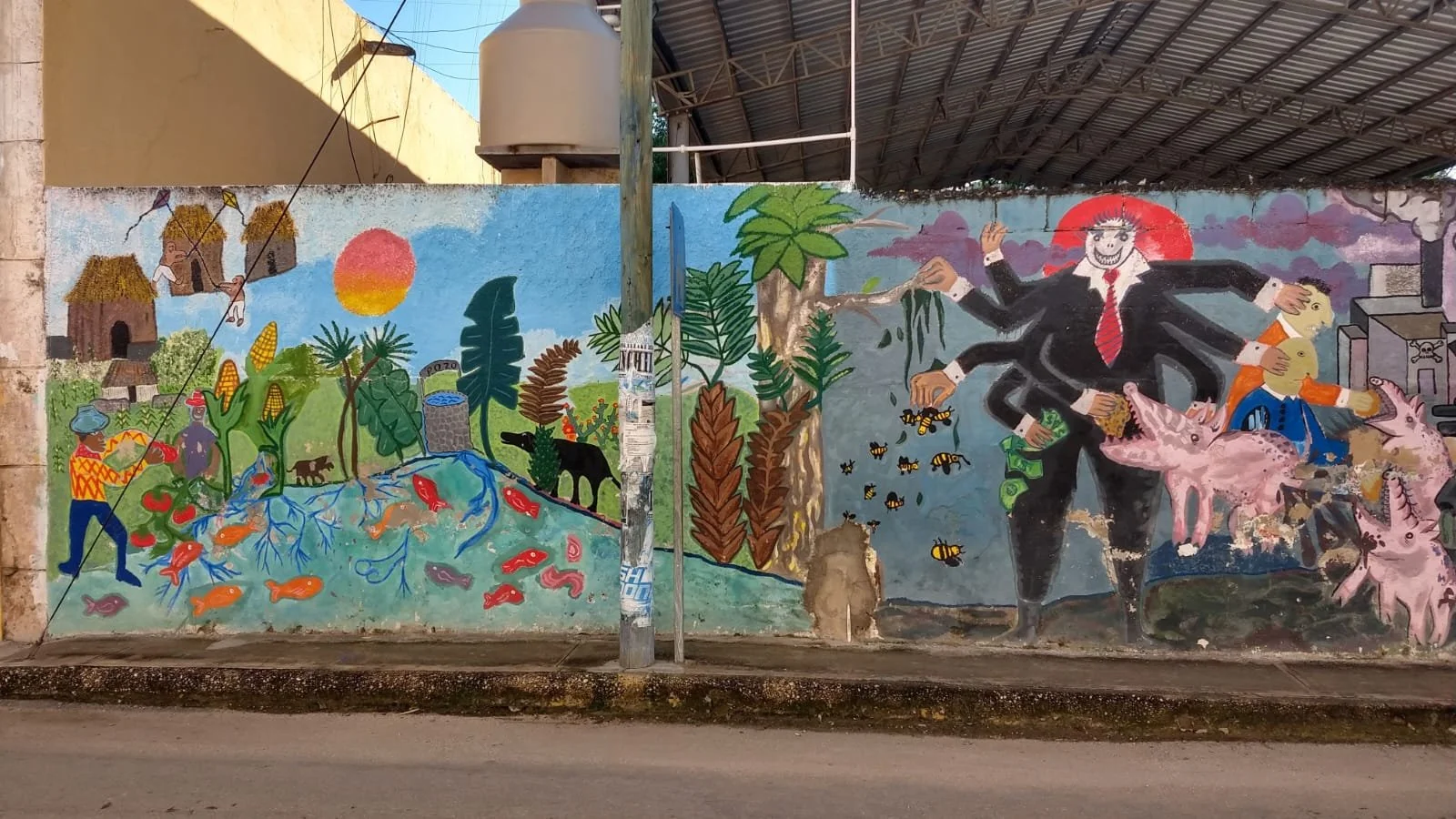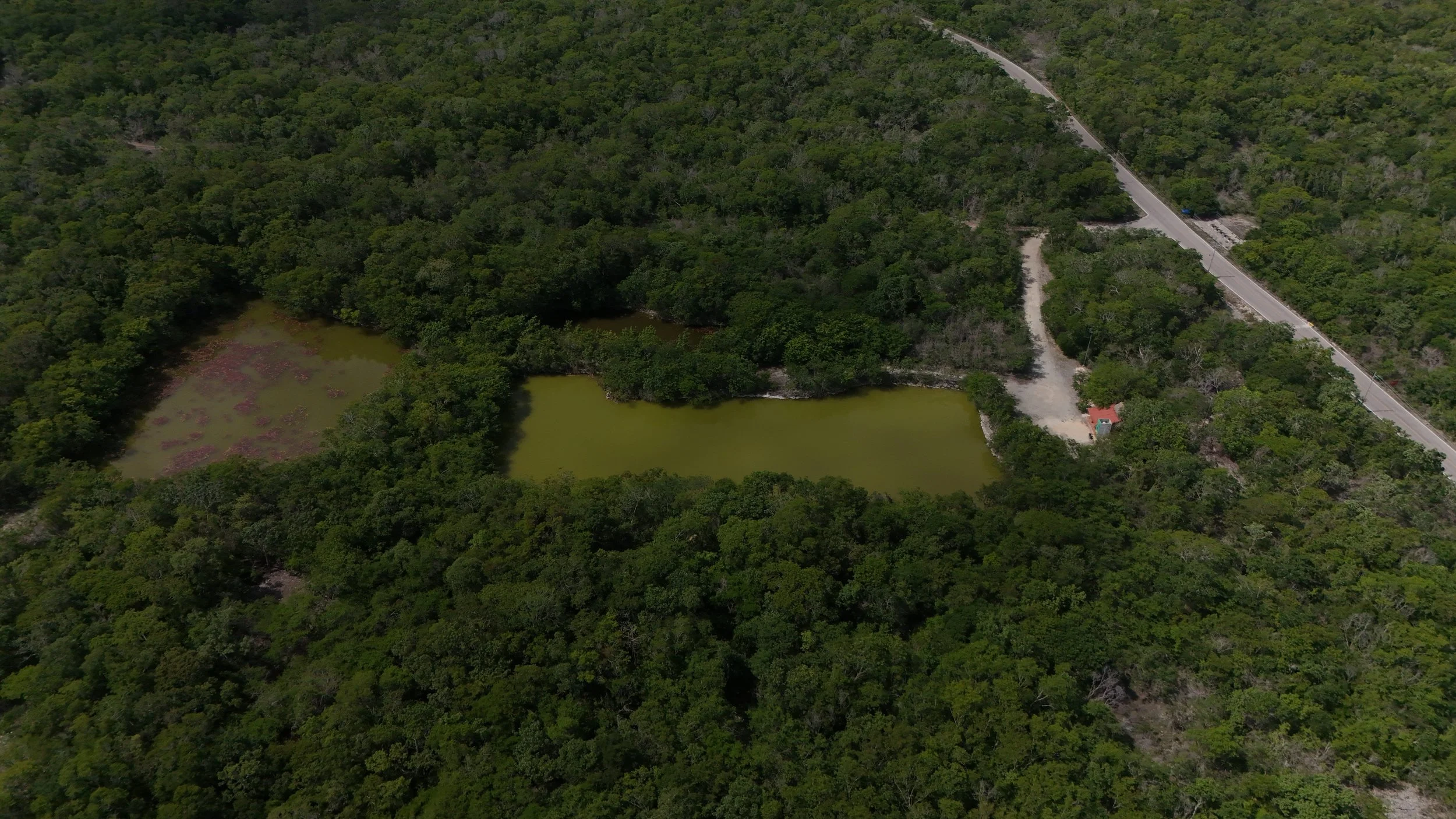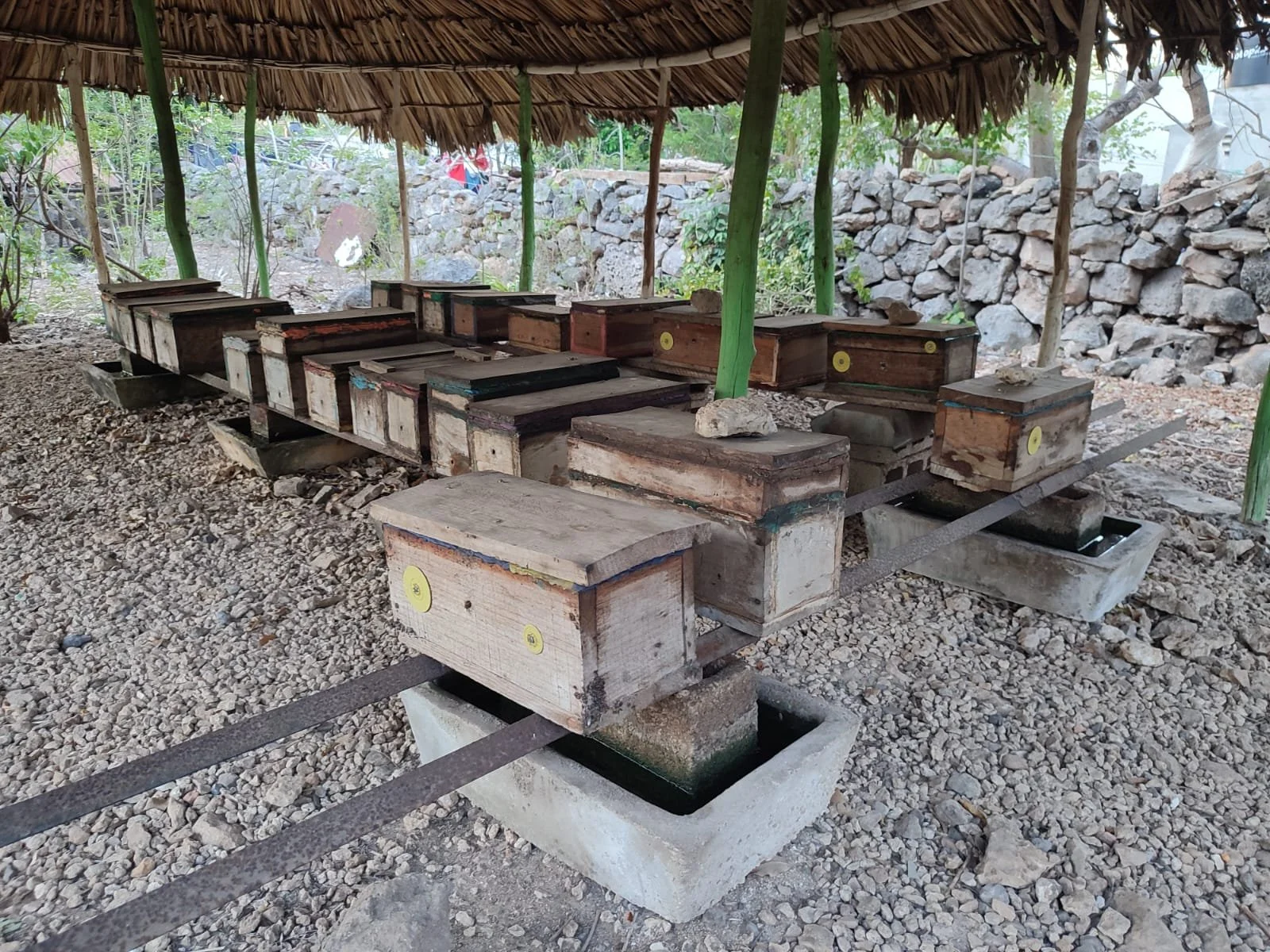Kinchil
A mural created by members of the Kinchil community in protest against the introduction of mega-farms in the community. The mural was erased shortly after its creation.
Kinchil has a population of approximately 7,530 inhabitants, while pork mega-farms can house more than 50,000 pigs in crowded sheds with concrete floors and no access to nature. Photo credit: Patricio Eleisegui
Farmers in Kinchil are engaged in legal disputes with Kekén, a company accused of seizing 2,400 hectares from peasant families. It currently controls an area of 3,000 hectares of forest and cenotes, despite having initially acquired only 600 hectares. Photo credit: Dorian D1-Unsplash
In the territory of Cantukun (near Kinchil), three families have been directly affected by land grabbing: backed by the State Attorney General's Office and the ROCA Group (an elite Yucatán police force trained by the US SWAT team, the Israeli Sayeret Matkal commando unit, and the French police special units GIPN and RAID), Kekén cut the wires that protected the land so the company could access it, disregarding the presence of the original owners, including their wives and children. Photo credit: Patricio Eleisegui
The Mayan Chik’in-já Council has been the primary defender against land-grabbing and other violations perpetrated by pork mega-farms. They conducted their own water monitoring as a result of the authorities' inaction regarding this environmental disaster, revealing contamination with fecal coliforms and Escherichia coli. Photo credit: Desinformémonos
“The police came in with the workers cutting the wires with scissors and knocking down the trees we had nurtured for beekeeping. It was very distressing. They aimed to exert their power and instill fear. One of them remarked, ‘Those who don’t show up or aren’t here, we’re going to hunt them down like deer.’ Later, our children were surveilled in Kinchil by company personnel.” Photo credit: Patricio Eleisegui
Even though the aggressive actions by the prosecutor’s office and the ROCA Group against the communities were reported to Mexico’s state and national human rights commissions, new industrial-scale chicken farms have been established recently in the area. It is known that the lands near Kinchil where the Kekén facilities are located have suffered a loss of vegetation of around 77,8% in the lower part of the forest and 17,8% percent in the medium part. Photo credit: Patricio Eleisegui
Photo credit: Patricio Eleisegui








